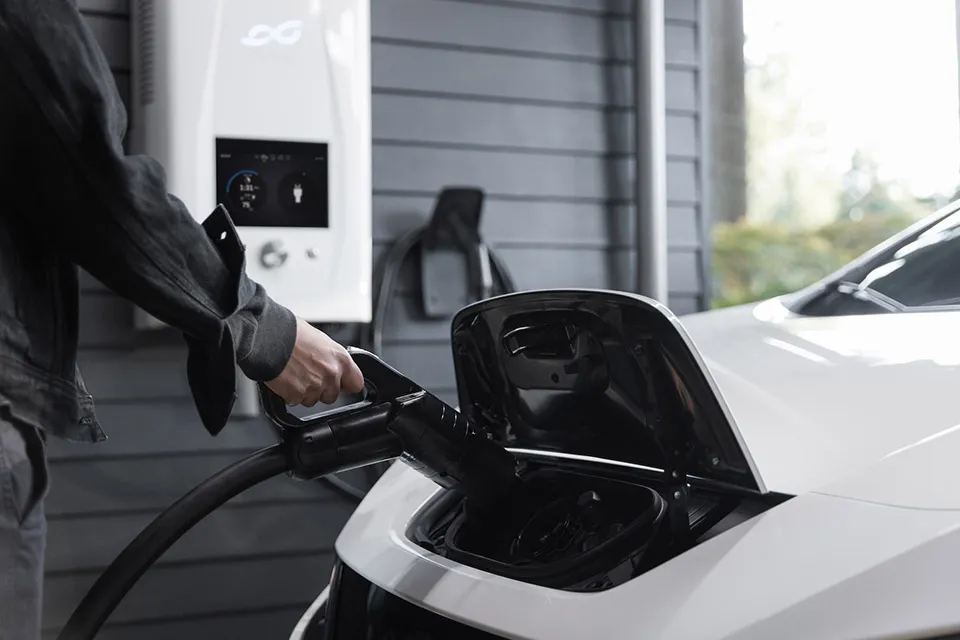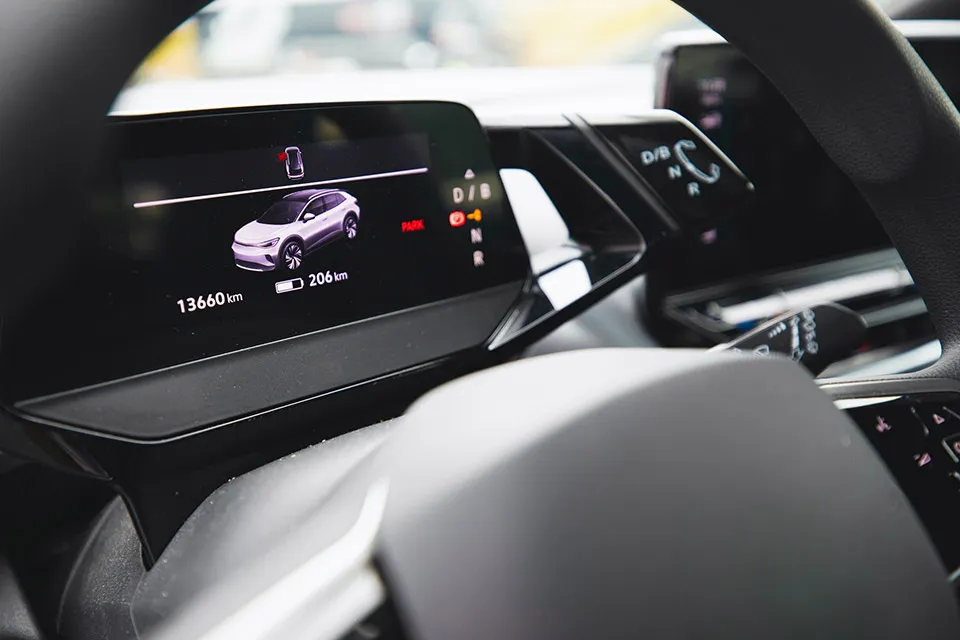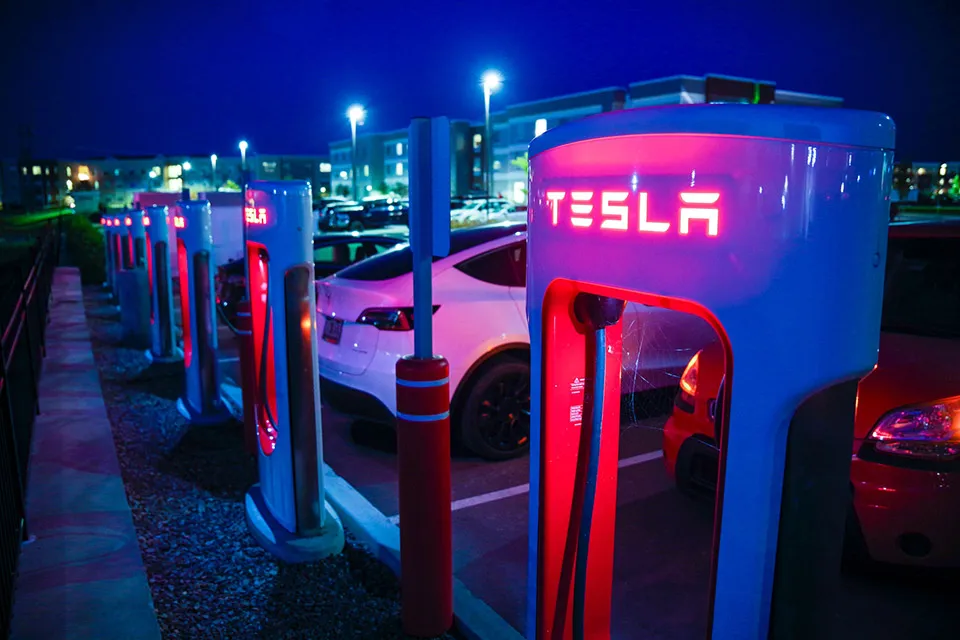- The Pros And Cons Of Electric Cars
- Myths About Electric Cars
- Advantages of Electric Cars
- Disadvantages of Electric Cars
- Battery Range and Life Expectancy
- Operating Costs Vs. Traditional Fuel Cars
- Environmental Impact
- Charging Options for Electric Vehicles
- Government Incentives For Electric Car Ownership
The Pros And Cons Of Electric Cars

Have you been thinking about making the switch to an electric car? If so, it is important to understand the pros and cons of electric cars before taking the plunge. So today, we will break down some of the key advantages and disadvantages of electric cars. Be sure to research everything you can before picking out your ideal make and model!
Myths About Electric Cars
Electric cars are becoming increasingly popular as people seek more sustainable and environmentally-friendly transportation options. However, many people still misunderstand electric cars and how they work. That is why GoodCar wants to dispel some common myths surrounding electric cars and give you an overview of the pros and cons of owning one.
Electric cars have come a long way in recent years, with technological advancements making them more efficient and affordable than ever before. Several different electric car models are now available on the market, from small hatchbacks to larger SUVs. Even some of the world's biggest car manufacturers, such as Tesla and BMW, offer electric car models.
Despite their growing popularity, there are still many misconceptions about electric cars. One common myth is that electric cars are expensive to buy and maintain. While it's true that electric cars can be more expensive upfront than traditional petrol or diesel cars, they start to save you money in the long run. Electric cars are cheaper to run because you don't have to pay for fuel costs (electricity is much cheaper than petrol or diesel) and require less maintenance than traditional petrol or diesel cars.
Another common myth about electric cars is that they're less powerful than traditional petrol or diesel cars, which simply isn't true - they have just as much power (if not more) than their traditional counterparts.
Advantages of Electric Cars
Electric cars come with many benefits. To start, they are cheaper to operate and maintain than gasoline cars. They are also better for the environment since they emit no or very low levels of pollutants and greenhouse gases. Electric cars also have the potential to reduce our dependence on imported oil.
The main disadvantage of electric cars is that the purchase price is higher than comparable gasoline cars. Another potential drawback is that electric cars may have shorter ranges than gasoline cars, meaning you would need to recharge more often on long trips.
Disadvantages of Electric Cars
Electric cars have a few disadvantages when compared to traditional gasoline cars. One of the biggest disadvantages is range anxiety, or the fear that your car will run out of battery power before you reach your destination. Electric cars also take longer to charge than gas cars to refuel, and they can be more expensive to purchase. Additionally, electric cars may not be as readily available as gas cars in some areas.
Battery Range and Life Expectancy

Electric cars have come a long way in recent years, and their battery range and life expectancy has greatly improved. However, you still need to know some things about pros and cons of electric cars before making the switch.
Here are some things to consider when it comes to battery range and life expectancy:
- Battery range can vary depending on the make and model of the car, as well as driving conditions. Most electric cars can generally travel between 100 and 200 miles on a single charge.
- The life expectancy of an electric car battery is typically around ten years or 150,000 miles. However, this can vary depending on how the car is driven and how often it is used.
Operating Costs Vs. Traditional Fuel Cars
Making the switch to an electric car can be a big decision. There are a lot of factors to consider, and operating costs are one of the biggest. So, how do electric cars stack up against traditional fuel cars regarding operating costs?
Traditional fuel cars typically cost more to operate than electric cars. For example, gas prices fluctuate frequently, and they're generally higher than the cost of electricity. Additionally, traditional fuel cars require more maintenance than electric cars, which can also add to their operating costs.
So, switching to an electric car is a good option if you're looking to save money on your transportation costs. However, there are other things to consider before making the switch, such as range anxiety and initial investment costs.
Environmental Impact
Electric vehicles have a smaller environmental footprint than gasoline-powered cars; they emit no pollution from the tailpipe, and their manufacturing process is cleaner than that of conventional vehicles. Electric cars also have the potential to reduce greenhouse gas emissions by using renewable energy sources to generate electricity.
However, there are some disadvantages of electric cars. The battery manufacturing process can harm the environment, and disposing of old batteries can be challenging. Electric cars also require more rare metals and minerals than traditional vehicles, which can lead to mining operations that damage delicate ecosystems.
Charging Options for Electric Vehicles

When it comes to electric cars, there are a few different charging options to choose from. While some people may prefer to charge their car at home, others may find charging at a public charging station more convenient.
Here are a few different charging options for electric vehicles:
- Home Charging: Home charging is the most convenient way to charge your electric car. You can either install a home charger or use a standard 120-volt outlet, and most home chargers can fully charge an electric car in around 8 hours.
- Public Charging: There are many public charging stations available across the country. These stations allow you to charge your car in a shorter amount of time than at home. Most public chargers can fully charge an electric car in around 4 hours.
- Solar Charging: Solar charging is a great way to reduce your carbon footprint and save money on your electricity bill. Solar chargers use renewable energy to power your electric car.
Government Incentives For Electric Car Ownership
Electric cars are becoming increasingly popular as people look for ways to save money on fuel and reduce their environmental impact. The government is offering several incentives for electric car ownership, making it even more attractive for consumers.
Federal tax credits of up to $7,500 are available for the purchase of a new electric vehicle. Additionally, many states offer their own incentives, including rebates, tax breaks, and free charging station access. These incentives can make electric cars much more affordable and help offset the higher upfront cost.
Electric cars also have a number of other benefits over traditional gasoline-powered vehicles. Since there are no pollutants that come out of these vehicles, they are a better option when your goal is to be kinder to the environment. Electric cars also have much lower running costs since charging them is less expensive than refining gasoline and buying it to put in a traditional, gas-powered vehicle.
If you're considering switching to an electric car, research the government incentives available in your area. With the right subsidy, an electric car could be a very attractive option!
Electric cars offer many advantages compared to traditional gasoline-powered vehicles, such as lower emissions, increased efficiency, and cost savings. While it is true that electric cars may carry a slightly higher price tag initially, the long-term benefits of reduced maintenance costs and improved fuel economy can make them an attractive option for those looking to reduce their carbon footprint or simply save money in the long run.
Pick Out the Best Vehicle to Suit Your Needs with the Help of GoodCar
Ultimately, when considering whether or not to switch from a traditional combustion engine to an electric vehicle, it's important to weigh up all pros and cons before deciding. If you find yourself in the market for a new or used EV, check out the GoodCar Marketplace and take advantage of our Vehicle History Reports, ensuring you get the best deal possible!
- The Pros And Cons Of Electric Cars
- Myths About Electric Cars
- Advantages of Electric Cars
- Disadvantages of Electric Cars
- Battery Range and Life Expectancy
- Operating Costs Vs. Traditional Fuel Cars
- Environmental Impact
- Charging Options for Electric Vehicles
- Government Incentives For Electric Car Ownership
FREE Vehicle Search
- Accidents
- Problem Checks
- Title Records
- Recalls
- Values
- Specs
-
InfoPay, Inc. (dba GoodCar) is an Approved NMVTIS Data Provider
-
-























